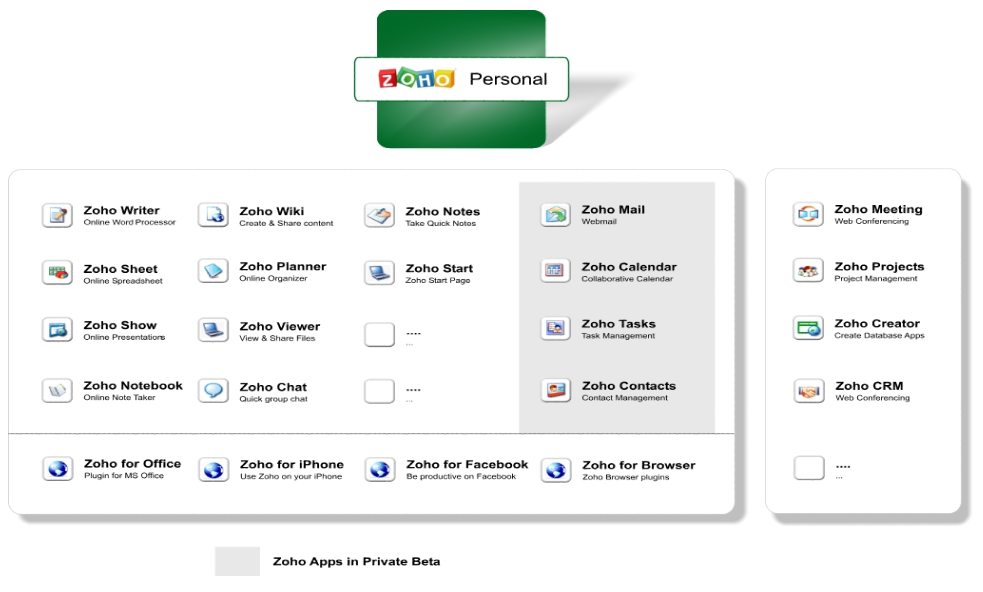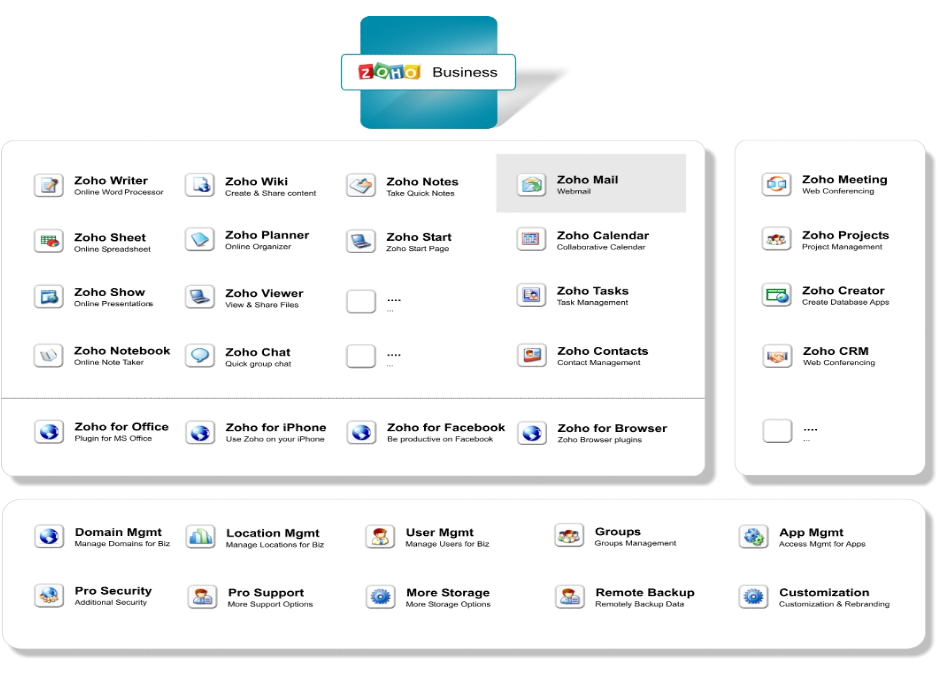 If the second largest Swiss telco partnered with Google for email, then who would the #1 select for business applications? You guessed right (I hope): it’s Zoho.
If the second largest Swiss telco partnered with Google for email, then who would the #1 select for business applications? You guessed right (I hope): it’s Zoho. 
Swisscom, Switzerland’s leading telco has for a while need piloting Teamnet, a business collaboration portal, which includes a customized version of Zoho Business, with Zoho Writer, Sheet, Show, Notebook, Meeting and other tools.

This comes on the heels of another, larger scale Zoho partnership with Baihui in China.
Zoho Business, also offered of course directly by Zoho is currently in private beta, which typically means by invitation – but here’s a secret (don’t tell anyone! ) : it’s actually open for use.
) : it’s actually open for use.
Zoho has a few similar deals in the works, and they also have white-label partnerships with fairly large corporate customers. The latter is probably the less-known side of the Zoho Story, but the one that allows them to offer their services free to individual users.
As a side-note, Swisscom certainly does not operate only in Switzerland: they were the team that outfitted last years Office 2.0 conference with excellent wi-fi – quite a story in itself.
Related posts at: Between the Lines, CenterNetworks,




Recent Comments